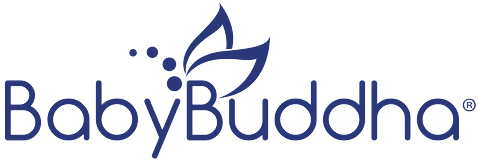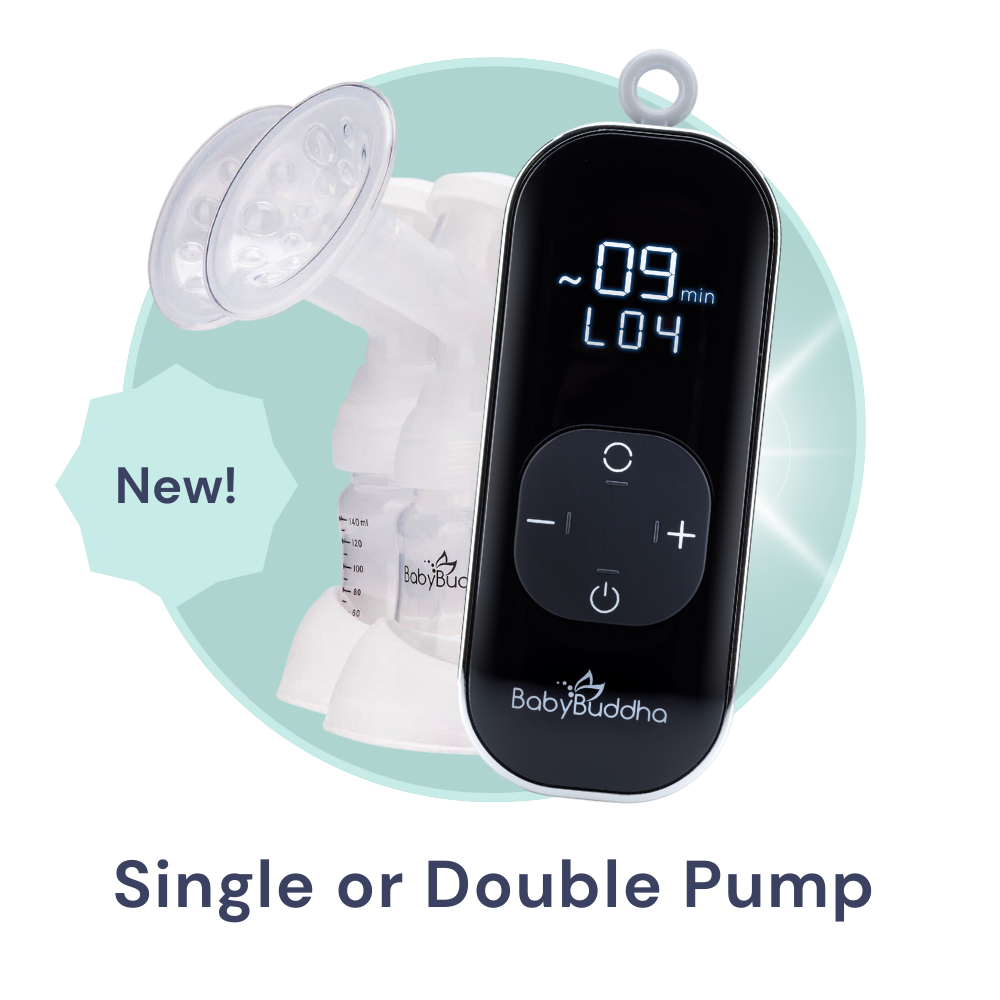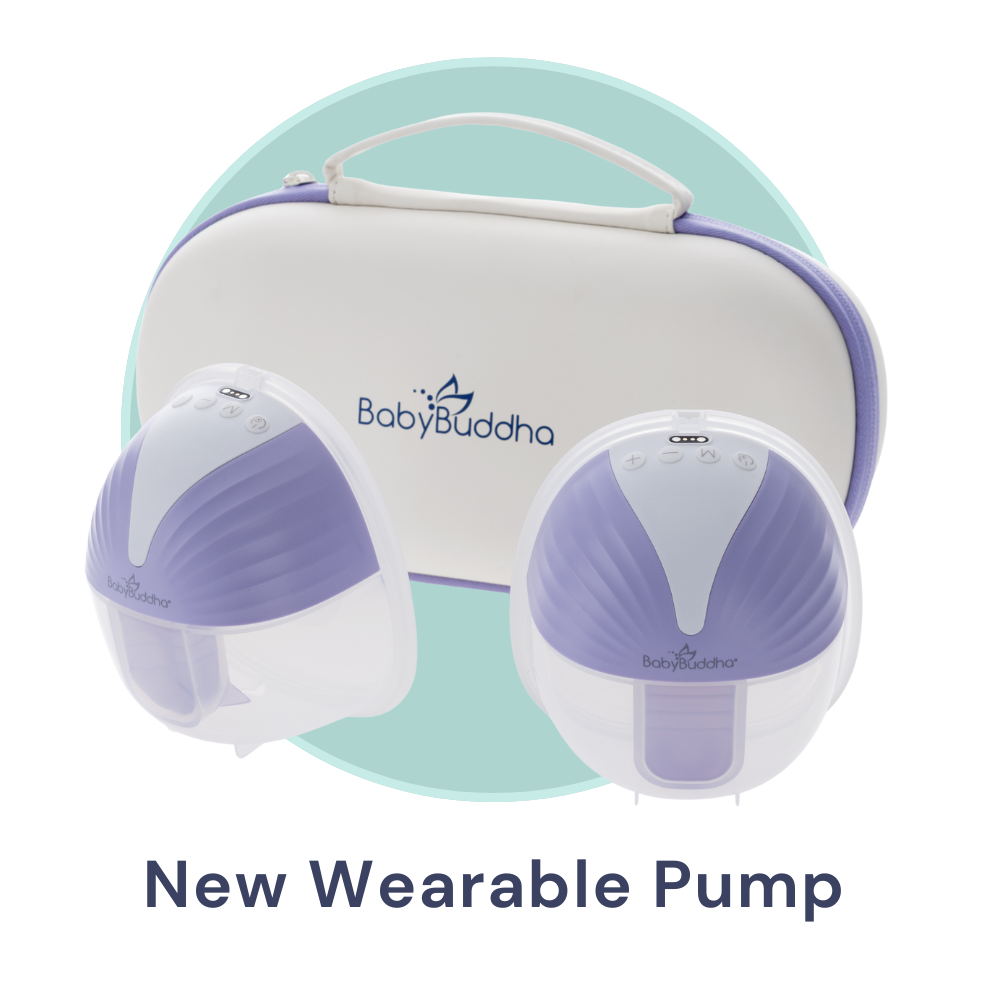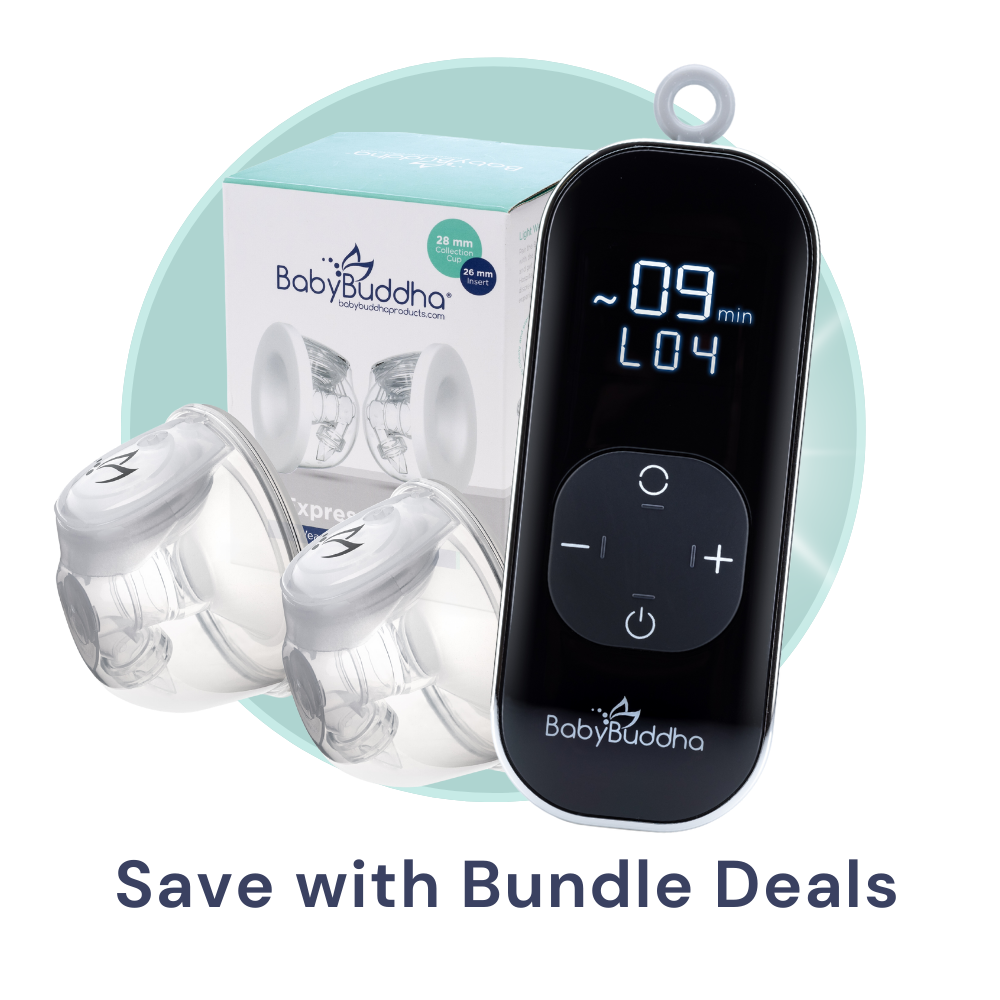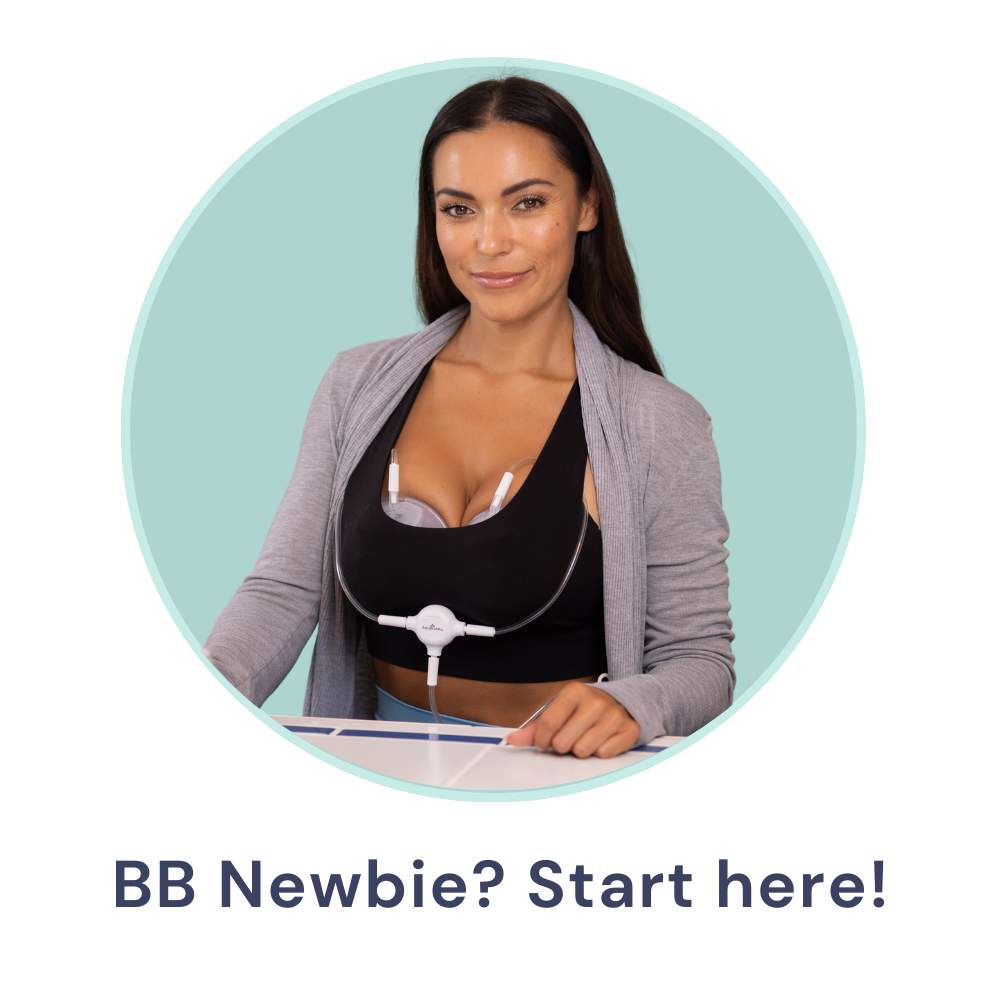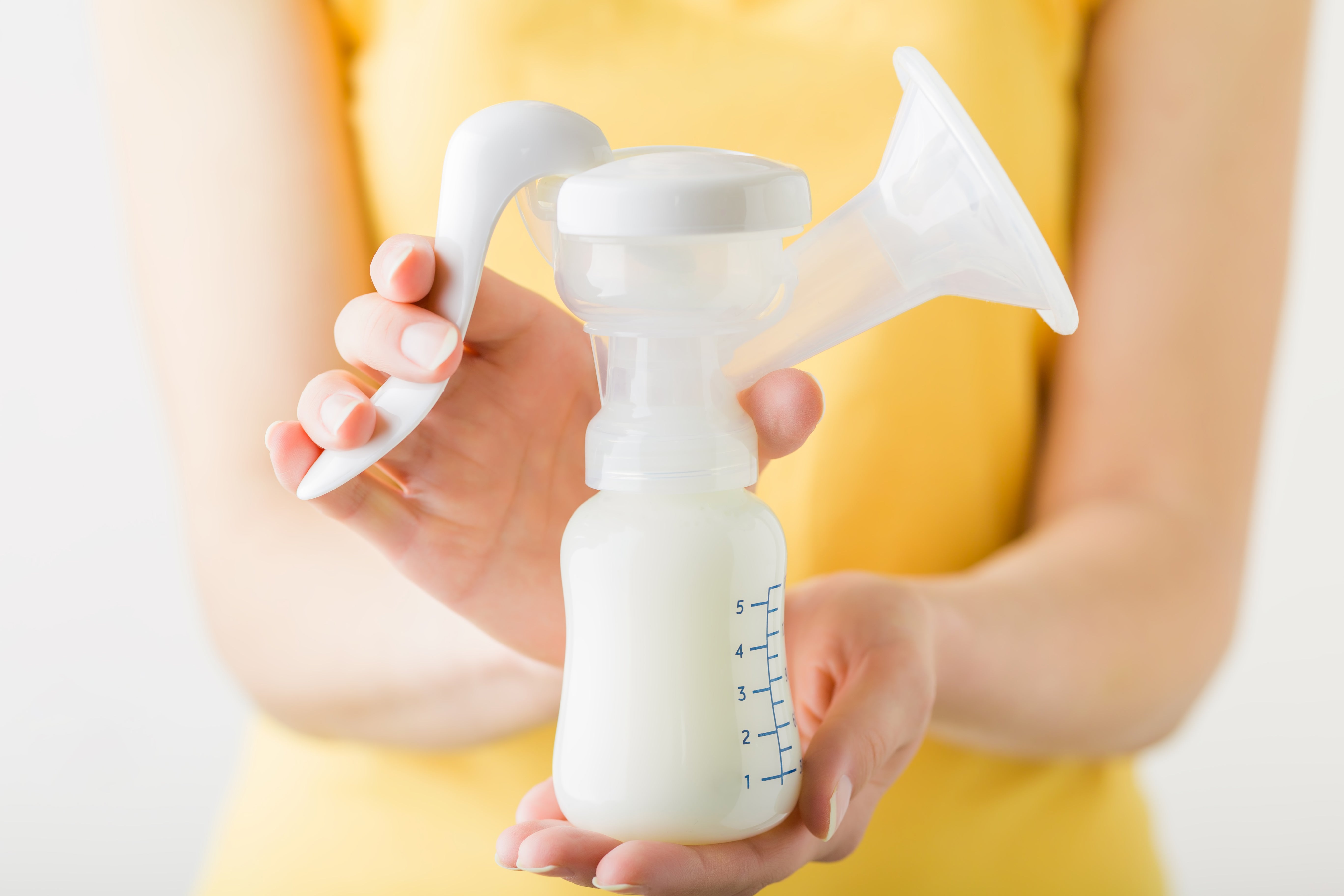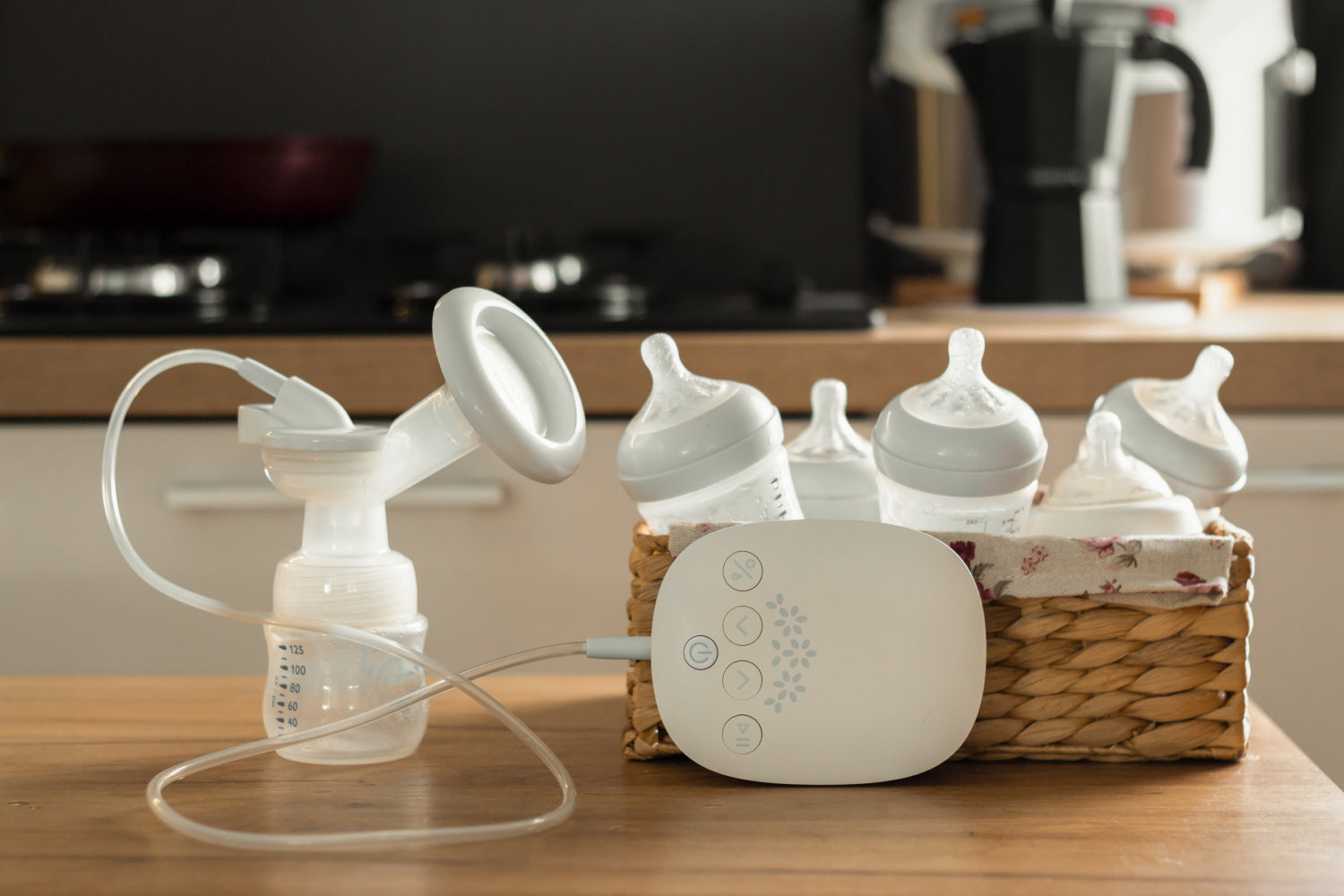Choosing which method to use when feeding your new baby is a decision that is very personal and unique to each situation. No mom and baby combination is the same, which means that no feeding journey will be the same. Exclusively pumping (EP) is when a mom expresses breast milk via a breast pump and offers it to her baby in a bottle rather than bringing her baby directly to the breast.
Some reasons that a mom may choose this method include:
- Baby has not latched properly to the breast
- Baby was born with a cleft palate or tongue-tie
- Exclusively pumping works better in your daily routine
- Nursing is simply not for you (and that’s ok!)
- You are pumping to donate breast milk
However you arrived at the decision to EP, we are here to help you. Let’s jump into our ten best exclusive pumping tips:
Familiarize Yourself With Breast Pumps And How They Work

Information is key when you are a mom. Whether you are a first-time mom or this is your first experience with pumping, it’s important to know all about the different kinds of breast pumps and how they work.
There are three main kinds of breast pumps to learn about:
- Battery Powered Pumps
- Electric Pumps
- Manual Pumps
Each of these different kinds of pumps serves a unique purpose, and each woman will have her own preference as to which kind she uses. There is no right or wrong answer; it is all about you and your lifestyle.
Choose and Purchase a Breast Pump That Suits You
There are so many different options on the market these days for new moms to choose from. Whether you choose a portable battery-powered pump or a manual hand pump, select the pump that will best fit your lifestyle. It doesn’t have to be all or nothing with one type either; many moms choose to do a combination of battery or electric-powered pumping and manual hand pumping.
Besides choosing a pump, you’ll also need to find a flange that fits. Checking your flange fitting guide can help ensure the perfect fit.
The good news is that most breast pumps are available to purchase through insurance as they are considered a medical necessity for lactating women. The process will be different based on which insurance company you use. You will most likely need a prescription note from your doctor for your pump, so be sure to ask them about that at your next visit.
Create a Pumping Schedule
One of the best ways to be successful with exclusively pumping is to create and stick to a pumping schedule. This will look different for every woman depending on their milk production.
Some women need to pump up to 12 or 13 times a day to maintain a large enough milk supply, while others will only need to pump five or six times a day. Others find power pumping to be the missing ingredient. Your pumping schedule may be a little bit of trial and error at first but don’t become discouraged.
The schedule is made to be tailored around YOU, based on your individual body and your baby’s needs. The schedule will also need to be adjusted as your baby gets older as the amount of milk they need to eat in a day changes.
Research Safe Breast Milk Storage

Knowing how to safely store your pumped breast milk is a vital part of your exclusive pumping journey. Not practicing proper storage of breast milk can result in the milk no longer being safe for your baby to consume. Be sure to adhere to safe breast milk storage recommendations to ensure that all your hard work isn’t going to waste.
The good news is that there are several ways to safely handle and store expressed milk. The most popular form of breast milk storage is using storage bags to freeze the milk and build up a stash. This is especially helpful if mom is going to be away from the baby for any length of time and someone else will need to take over offering bottles.
Learn How To Properly Clean Your Pump and Pump Parts
Another vital part of being an exclusively pumping mom is knowing how to properly clean and care for your pump and all the parts that come with it. This may feel very overwhelming at times, but once you get into the routine of it, it’s a breeze.
You can even enlist help in this mundane task. Include your partner, other family members, or friends in properly cleaning your pump so they can take this off your to-do list. This gives you more time with that snuggly little newborn!
It does also help to use pumps that are easily sanitized. For example, the BabyBuddha Manual Pump can be flash-boiled for a quick, thorough clean.
Monitor Your Vitamin D Intake
Vitamin D is an essential vitamin for a baby’s growth and development. Moms will need to check their dietary intake and may need to take a supplement.
Some foods high in vitamin D are eggs, whole milk, mushrooms, and oatmeal. Another way to get vitamin D is to get some sun (while protecting your skin, of course). If these are not options, your pediatrician may recommend that either mom take vitamin D supplements. It’s very unlikely that a baby would need a vitamin D supplement.
Stay Hydrated
Keeping up your water intake is crucial for both exclusively pumping and nursing. Your body needs enough hydration to keep up with breast milk production.
Another reason that you need to stay hydrated is for your own health. Dehydration can lead to serious side effects that would not be enjoyable at any point, let alone while exclusively pumping and feeding your infant. It is recommended that nursing (or pumping) moms drink about 16 cups of water per day.
Make it fun, and get a cute new water bottle! After making an entire human, you deserve it.
Find Support

Support as an exclusively pumping mama is crucial. Support can come from a lot of different places. A partner, close friends, and family members will likely be your main source of support. Talk to them about this decision and enlist their help. They can help in the most practical ways by cleaning parts, storing milk, and offering encouraging words through the difficult moments.
Other areas of support are extremely beneficial as well. There may be a support group for pumping moms in your town, or maybe you can find a virtual group on social media. Your baby’s pediatrician can be an excellent resource and support during this time of exclusively pumping.
Another huge support can be that of a lactation consultant. These professionals are experts in helping families with all things breastfeeding and pumping. They can answer any questions that you may have about pumping frequency, milk production, and more.
At BabyBuddha, we offer free lactation consultations to all of our customers. Our specialists are just a message away!
Know Your Rights and Go To Work Prepared
One of the biggest concerns among exclusively pumping moms is what happens when they go back to work. Thanks to a series of different rulings, pumping mothers are protected by laws that guarantee them the time and space to pump while at work. However, it’s important to note that the regulations surrounding this can vary based on the size of the company.
This way, your little one doesn’t have to miss out on that liquid gold, and you can keep your supply up while away. Many women believe that looking at pictures or watching videos of their babies while they pump at work helps them achieve a let-down and express a sufficient amount from the breasts. Keep sanitization and refrigeration in mind while at work and make provisions ahead of time before coming back from maternity leave.
Be Kind To Yourself
While some moms plan to exclusively pump ahead of their baby's birth, some moms might have other plans.
No matter what, remember that you are a great mom, and you are still nourishing your child with love regardless of whether that’s at the breast, breast milk in a bottle, or formula in a bottle. That is something to be celebrated.
Feeding your little one directly from the breast is not the only way to bond with them; bottle feeding offers this too. For example, skin-to-skin contact is something your whole family can help to nourish your baby. Ultimately, there are so many other ways to bond with babies in addition to feeding them.
We hope that these ten exclusive pumping tips have helped you feel more confident as you head into this wonderful journey of feeding your little one. Remember to take things one step at a time and find that support system. That will be your biggest asset in this adventure of motherhood.
We would love to support you however we can. Message our team if you have questions about any of our pumps, and keep reading our collection of resources for more helpful tips and information.
Sources:
How to Keep Your Breast Pump Clean | CDC
Proper Storage And Preparation of Breast Milk | CDC
What Breastfeeding Employees Need to Know | Office on Women's Health
29 Little Ways to Bond With Your Baby | Parents
Nursing Your Baby What You Eat and Drink Matters | Academy of Nutrition and Dietetics
Frequently Asked Questions – Break Time for Nursing Mothers | U.S. Department of Labor
